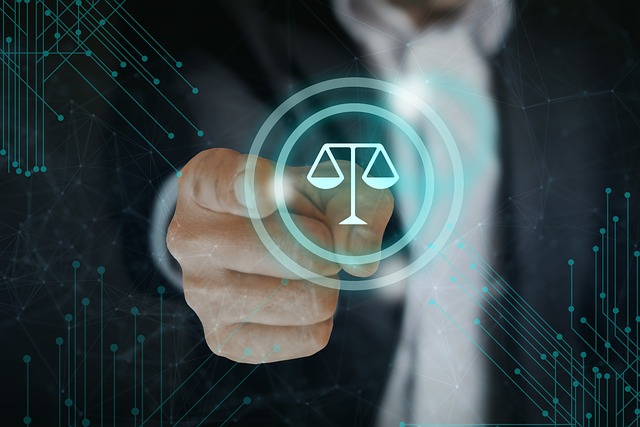In today's globalized UK legal landscape, accurate court documents translation services are crucial for fairness and accessibility. With increasing international cases and diverse linguistic backgrounds, professional translators must master complex legal terminology and cultural nuances to bridge language gaps. Choosing the right translation firm with proven expertise and certifications ensures quality and admissibility in UK courts. Best practices include adhering to industry standards, using specialized databases, peer review, and staying current with legal reforms for precise, reliable translations tailored to UK law requirements. AI tools can assist but cannot replace human experts for complex cases; integrating technology with human expertise offers swift, high-quality results for efficient cross-border litigation.
In the evolving legal landscape of the UK, accurately translating court documents is paramount. This article explores the intricate world of Court Documents UK translation services, delving into their significance, unique challenges, and best practices. We navigate the complexities of legal translation, highlighting the importance of expertise for seamless communication in a globalized court system. From understanding cultural nuances to ensuring compliance, discover the key considerations for precise and reliable UK legal submissions translations.
- Understanding the Importance of Accurate Legal Translations in the UK
- The Challenges of Court Document Translation: A Deep Dive
- Choosing the Right UK Legal Translation Services
- Ensuring Quality and Compliance: Best Practices for Legal Translators
- The Future of Legal Translation in a Globalised UK Court System
Understanding the Importance of Accurate Legal Translations in the UK

In the intricate legal landscape of the United Kingdom, clear communication is paramount, especially when it comes to court documents. Accurate legal translations play a pivotal role in ensuring fairness and accessibility within the justice system. With an increasing number of international cases and diverse linguistic backgrounds, professional translation services have become indispensable for UK courts and legal professionals.
The precision and expertise required in translating court documents are crucial. Legal terminology is often complex and highly specific to each jurisdiction. Skilled translators must possess a deep understanding of both the source and target languages to convey precise meanings, maintaining the integrity of legal arguments and evidence. Effective translation services bridge the language gap, enabling all parties involved to navigate the UK legal system with confidence, ensuring that every document is handled with the utmost accuracy and sensitivity.
The Challenges of Court Document Translation: A Deep Dive

The process of translating court documents involves more than simply exchanging words from one language to another. It’s a complex task that demands precision, legal expertise, and an in-depth understanding of both the source and target languages and their cultural nuances. This is especially true for UK legal submissions, where clarity and accuracy are paramount. Even minor errors can have significant consequences, potentially leading to misunderstandings, delays, and even adverse rulings.
Court document translation services must navigate a labyrinth of challenges, including technical jargon, legal terminology, and often, tight deadlines. They must ensure that the translated text not only conveys the exact meaning but also adheres strictly to the original intent and purpose of the document. This requires a deep dive into the context, including prior case law and relevant legal frameworks, to produce translations that are both reliable and admissible as evidence in UK courts.
Choosing the Right UK Legal Translation Services

When it comes to choosing UK legal translation services, especially for court documents, selecting the right partner is paramount. Look for firms with a proven track record in handling complex legal texts and a deep understanding of both UK law and the language you require. Experience in translating court documents ensures accuracy and consistency in terminology, which is critical in such sensitive matters.
Reputation and certification are key indicators of quality. Choose translation services that are member of professional bodies and hold relevant certifications, such as ISO 17100. These standards guarantee a high-quality service, ensuring your documents are not only accurately translated but also culturally adapted for their intended audience.
Ensuring Quality and Compliance: Best Practices for Legal Translators

Ensuring quality and compliance is paramount in legal translation, especially when dealing with court documents in the UK. Legal translators must possess a deep understanding of both the source and target languages, as well as a keen eye for detail. Best practices include adhering to industry standards such as the Language Industry Standards (LIS) and utilizing specialized terminology databases to maintain consistency.
Regular quality assurance processes are essential, involving peer review and proofreading. Translators should also stay updated with legal reforms and changes in terminology to guarantee their work remains current and accurate. Additionally, compliance with ethical guidelines, such as those set by professional translation associations, is crucial to maintaining integrity and ensuring client satisfaction in UK court document translations.
The Future of Legal Translation in a Globalised UK Court System

In today’s globalized UK court system, the demand for accurate and proficient legal translation services has never been more critical. As cases become increasingly international, with parties and evidence stemming from diverse linguistic backgrounds, the need for expert translators is paramount. Advanced AI tools have their place, but they cannot replicate the nuanced understanding required to translate complex court documents. Professional UK translation services that specialize in legal translations are crucial for ensuring fairness, precision, and the integrity of the justice system.
The future of legal translation lies in seamless integration between technology and human expertise. Machine learning can assist in initial drafts, but experienced translators will still be indispensable for refining the text to meet the stringent requirements of UK courts. This combination allows for swift turnaround times without compromising quality, enabling legal professionals to navigate the complexities of cross-border litigation more efficiently.
Accurate legal translations are indispensable in the UK court system’s globalized landscape. Navigating the complexities of court document translation requires specialized knowledge and expertise. By choosing reputable UK legal translation services that adhere to best practices, we can ensure quality, compliance, and fairness in legal proceedings. This article has highlighted the importance of precision, cultural sensitivity, and technical proficiency in legal translations, underscoring the pivotal role they play in facilitating access to justice for all.
